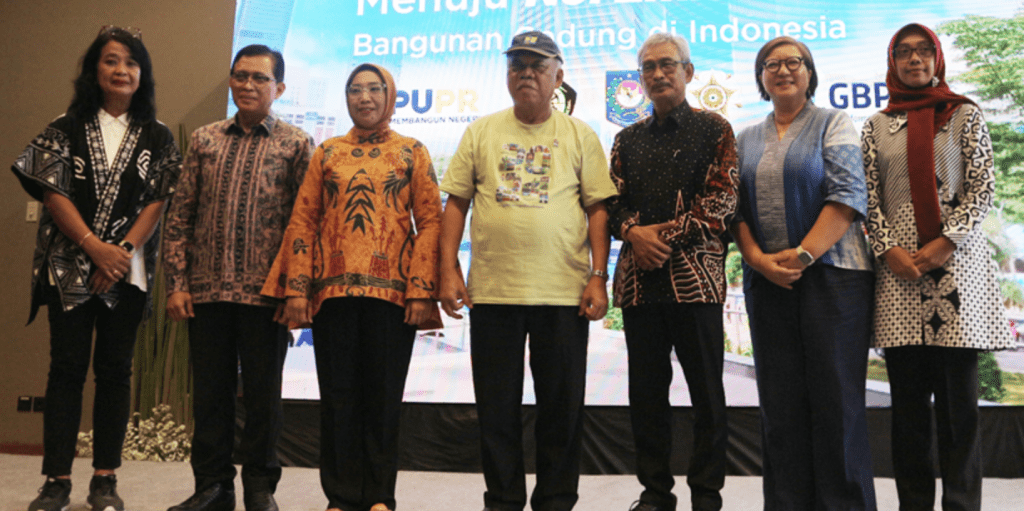Indonesia’s government launched the National Roadmap for Green Building Implementation in late 2024, marking a step forward in coordinating national efforts to reduce emissions from the buildings sector. With GBPN’s support, this roadmap was developed jointly by the Ministry of Public Works and Housing (MPWH), the Ministry of Energy and Mineral Resources (MEMR), and the Ministry of Home Affairs (MoHA), each of which plays a distinct role in shaping building policy, energy efficiency, and local government engagement.
Until recently, Indonesia lacked a unified national strategy to reduce the environmental footprint of its rapidly expanding buildings sector. Indonesia is adding 50 million square meters of housing every year, and the UN estimates that by 2050, 70 percent of Indonesia’s population will live in urban areas. Without intervention, emissions from the sector will undermine Indonesia’s national climate commitments and put immense pressure on energy systems and vulnerable communities. The absence of coordinated direction and a clear, harmonized roadmap made it difficult to scale effective solutions.
Collaboration is key for real impact
GBPN played the role of technical advisor and facilitator in supporting the development of the roadmap. A key challenge in the process was bringing together ministries with different mandates and priorities. GBPN supported the dialogue by organizing joint workshops and providing a shared evidence base. This helped to clarify how each ministry’s role could be maintained while working toward a common goal. The result was a roadmap that outlines roles and responsibilities, performance benchmarks, and practical steps for improving energy performance in both new and existing buildings.
At the roadmap launch, Minister of Public Works and Public Housing (2014-2024) Basuki Hadimuljono highlighted the need for collaborative implementation: “The launch of this roadmap can be an initial momentum for the implementation of green building practices in Indonesia through strengthening synergies across central and regional government agencies, as one of the efforts to reduce greenhouse emissions in the building subsector.”
The project benefited from GBPN’s experience in supporting buildings sector reforms in other countries and its ability to provide international examples that could be adapted to the Indonesian context. GBPN’s involvement included policy research, development of technical recommendations, and the coordination of multi-stakeholder consultations to ensure the roadmap was both technically sound and feasible to implement.

Driving implementation forward
The roadmap outlines clear guidelines and performance metrics aimed at reducing energy consumption and emissions in new and existing buildings. It also addresses the role of local governments in enforcing green building regulations and provides a blueprint for how all key stakeholders in the private sector can contribute to this national effort. If fully implemented, the roadmap could avoid 450 Mt of CO2 emissions by 2040.
In addition to climate benefits, the roadmap is expected to contribute to improved energy reliability, reduced electricity costs for consumers, and thermal comfort and health for occupants.
GBPN continues to support the city governments and national ministries to collaborate on implementation of the roadmap. GBPN is instrumental in facilitating this partnership by providing a platform to address policy development and implementation gaps.
As Dr. Dewi Chomistriana, Ministry of Public Works, emphasized in her keynote speech at a subsequent stakeholder engagement event, “Green buildings are not just about regulations or documents but also about implementing its action plans and providing real benefits that improve people’s lives.”
